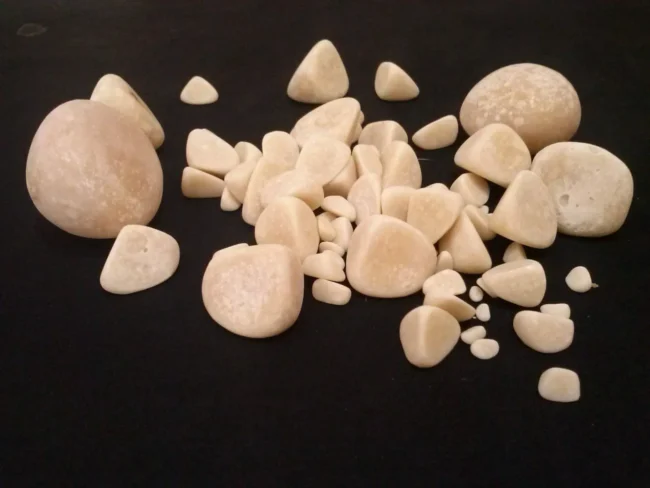
Struvite stones, formed by Magnesium, Ammonium and Phosphate, are the most common types of urinary stones found in both dogs and cats.
Calcium oxalate stones come in second place in both species. The third most common in dogs are cystine and urate stones, the latter of which are more common in Dalmatians because they metabolize purines into Uric acid; the excretion of this acid always results in the formation of stones.
In cats, diet is the main factor in the formation of the first type of stones, whereas in dogs, in addition to diet, acid-base imbalances in the urine, as well as Urinary tract infections, contribute greatly to the formation of these Uroliths, as these mineralized stones that form in the urinary tract are known.
To ensure the optimal health of dogs, it is important to consider not only their diet but also any acid-base imbalances, specifically urine acidity.
Urine acidity, diet, and stone formation in cats
Studies have shown that a low pH level in cat urine, which is considered acidic, not only prevents the formation of urinary stones but also aids in the dissolution of pre-existing ones.
Regarding nutrition, diets that promote a neutral to alkaline pH favor the formation of Struvite stones, and this factor is much more important than the presence of Magnesium in the diet (one of the elements that form this type of stone).
A carnivorous animal that feeds on prey in its natural habitat typically has a diet that results in a urinary pH level ranging from 6.2 to 6.6.
Cats drink little water, which concentrates the urine and increases the chances of concentration of stone-forming elements (Magnesium, Ammonium, and Phosphate).
Processed diets are low in water (10 – 15%), which also concentrates urine.
Homemade diets (chicken, rabbit) have high water content (70 – 75%), causing the cat’s urine to be less concentrated, and diluting stone-forming elements.
Nutritional management of Struvite stones in dogs
For Struvite stones to form in dogs, an alkaline pH is necessary, as well as urine that’s saturated with Magnesium and Phosphate. Additionally, Urinary tract infections can increase the likelihood of Struvite stone formation.
Antibiotic therapy is more important than diet with this type of stone
Diets with reduced amounts of high-quality protein, phosphorus, and Magnesium reduce urea, Phosphate, and Magnesium in urine. Studies show that these diets promote the dissolution of Struvite stones in dogs.
Prescription diets for dogs are advertised as effective in dissolving Struvite stones, as they are low in Magnesium and phosphorus, which is ideal. They are also low in protein, and if the protein is of high quality, it is even better.
Commercial diets are low in water (10 – 15%). Home-cooked diets are high in water (70 – 75%). The more water in the bladder, the less chance of stone formation.
Medical management using antibiotics is as important as a natural diet with 80% water rather than dry kibble with only 10%. Use quality nutrients and avoid those that can cause the formation of stones.
Lastly, I would like to emphasize once more the significance of the low water content in processed diets (10 – 15%) which can result in more concentrated urine, which in turn increases the likelihood of Struvite stone formation due to higher levels of stone-forming elements. Homemade diets that contain a higher percentage of water (around 70 – 75%) help dilute these elements and prevent Struvite stone formation.
Click here and fill out the questionnaire if you want us to start working together.
Best regards
